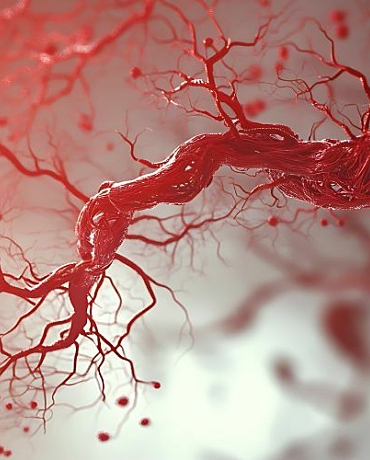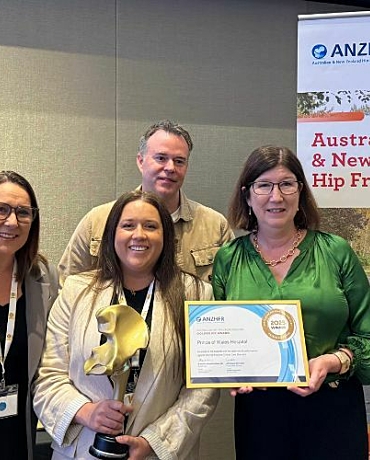The latest Australian and New Zealand Hip Fracture Registry Report shows signs of improvement in hip fracture care, but COVID continues to have an impact.
- 82% of patients had surgery within 48 hours, up from 81% in 2020
- 70% of patients had a preoperative assessment of cognition, up from 67% in 2020
- 92% of patients had a nerve block to manage pain before surgery, up from 79% in 2020
- 75% of patients in Australia were assessed for delirium, with 39% of those assessed identified as experiencing delirium
- 65% of patients in New Zealand were assessed for delirium, with 46% of those assessed identified as experiencing delirium
- Adjusted mortality-rate at 365 days reduced to 22.1% in 2020, compared with 24.8% in 2019
The latest Australian and New Zealand Hip Fracture Registry (ANZHFR) Report, published by Neuroscience Research Australia (NeuRA) based on data from 93 hospitals on 15,331 hip fractures across Australia and New Zealand, has revealed that while an increasing number of Australians are suffering hip fractures, quality of care is improving.
It is estimated that 20,000 people in Australia and New Zealand will fracture their hip each year. With an ageing population, that figure is set to continue to rise for the foreseeable future, increasing the burden on economies, communities and families.
This year’s ANZHFR report highlights key data on both preoperative assessment of cognition and postoperative assessment of delirium across each country. Using a validated tool to assess baseline cognition on admission means clinicians can then go on to assess for delirium and monitor this throughout the patient’s stay.
Delirium is an acute change in mental status common among older patients hospitalised with a hip fracture, and is more common in people who already have cognitive impairment. It’s considered a medical emergency and is associated with poor outcomes including death.
ANZHFR Co-Chair and Principal Research Fellow at NeuRA, Professor Jacqueline Close, said report findings show hospitals are improving in their prompt diagnosis and treatment of delirium.
“Delirium is essentially a brain attack. We now also know that people who develop a delirium are at an increased risk of subsequently developing dementia.
“Promisingly, the report provides some positive news that we are getting better at assessing hip fracture patients for cognitive impairment and delirium. We can’t treat what we don’t know and so the fact that identification is improving is the first step to providing better prevention and management.
“It has also been pleasing to see improvements in other aspects of care over the past year including assessment and management of pain and the percentage of patients having surgery within 48 hours, however other indicators, such as same day walking post-surgery, still have significant room for improvement,” she said.
How COVID-19 has impacted hip fracture care
The COVID-19 pandemic has continued to put pressure on health systems in Australia and New Zealand, with 48% of Australian and 18% of New Zealand hospitals reporting that the impact of COVID-19 had led to changes in the way older patients with a hip fracture were cared for.
The most commonly reported changes were:
- Ward configuration changes, primarily conversion of orthopaedic wards to dedicated COVID-19 wards
- Hip fracture patients cared for on outlying wards, due to the absence of a dedicated orthopaedic ward, or suspected/confirmed COVID-19
- Transfer of hip fracture patients to other hospitals for definitive management
- Reduced access to rehabilitation, with closure of rehabilitation wards or transfer delays
- Reduced access to orthogeriatric services, due to staff redeployment to other roles in the hospital and community settings
- Challenges caring for patients in isolation rooms
- Improved access to operating theatres
Prof Close added the exclusion of families has had one of the biggest impacts over the past three years, with loved ones not being able to meaningfully interact with family members hospitalised due to a hip fracture.
“It’s been a stark reminder around the crucial care and support role that families play when a frail older person is hospitalised, particularly for patients who are also living with dementia,” she said.
A copy of the full ANZHFR Report can be accessed here.
About the Australian and New Zealand Hip Fracture Registry
The Australian and New Zealand Hip Fracture Registry (ANZHFR) is managed by the Falls, Balance and Injury Research Centre at Neuroscience Research Australia, an independent medical research institute affiliated with the UNSW Sydney Faculty of Medicine. In New Zealand, the Registry is supported by the New Zealand Orthopaedic Association. The Registry’s aim is to improve the care provided to older people who fracture their hip.
About NeuRA
Neuroscience Research Australia (NeuRA) is an independent, not-for-profit research institute based in Sydney aiming to prevent, treat and cure brain and nervous system diseases, disorders and injuries through medical research.
To learn more about NeuRA: www.neura.edu.au




